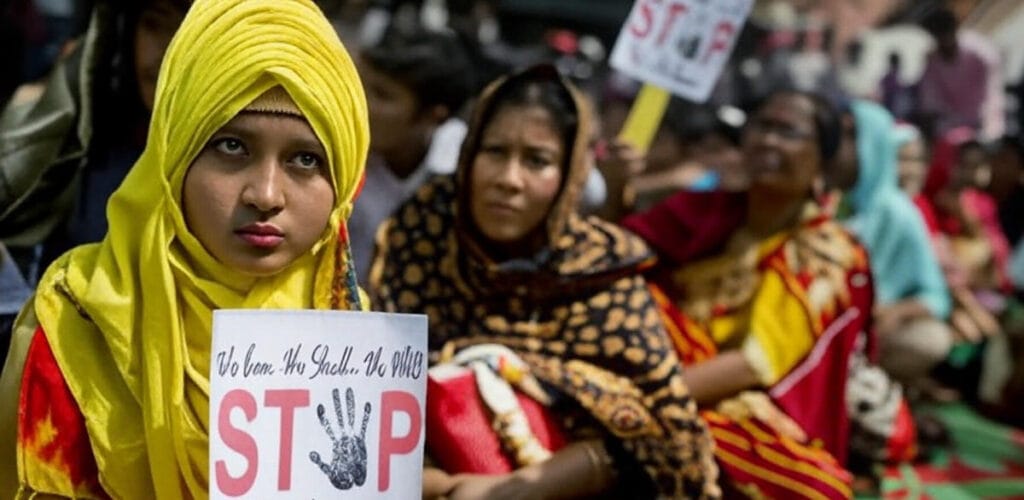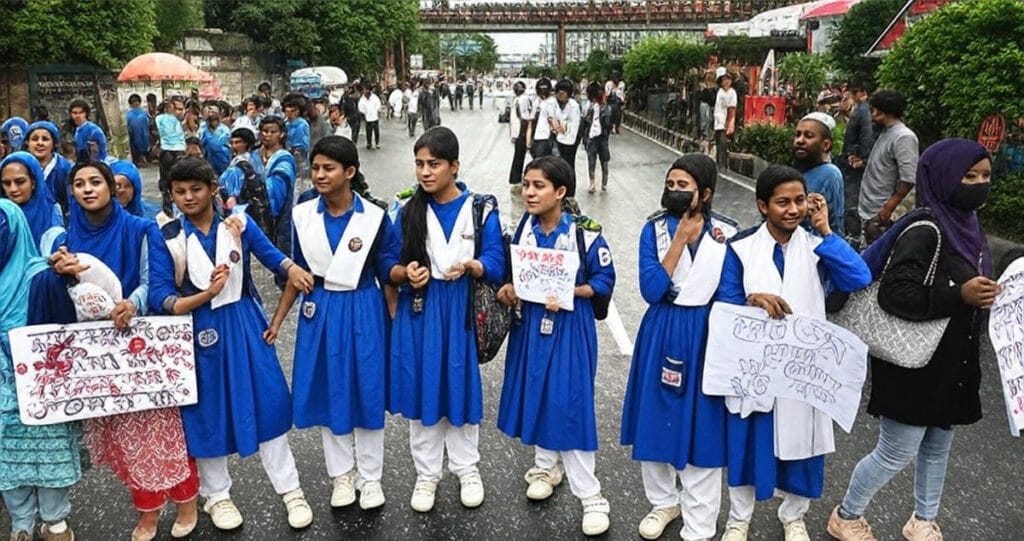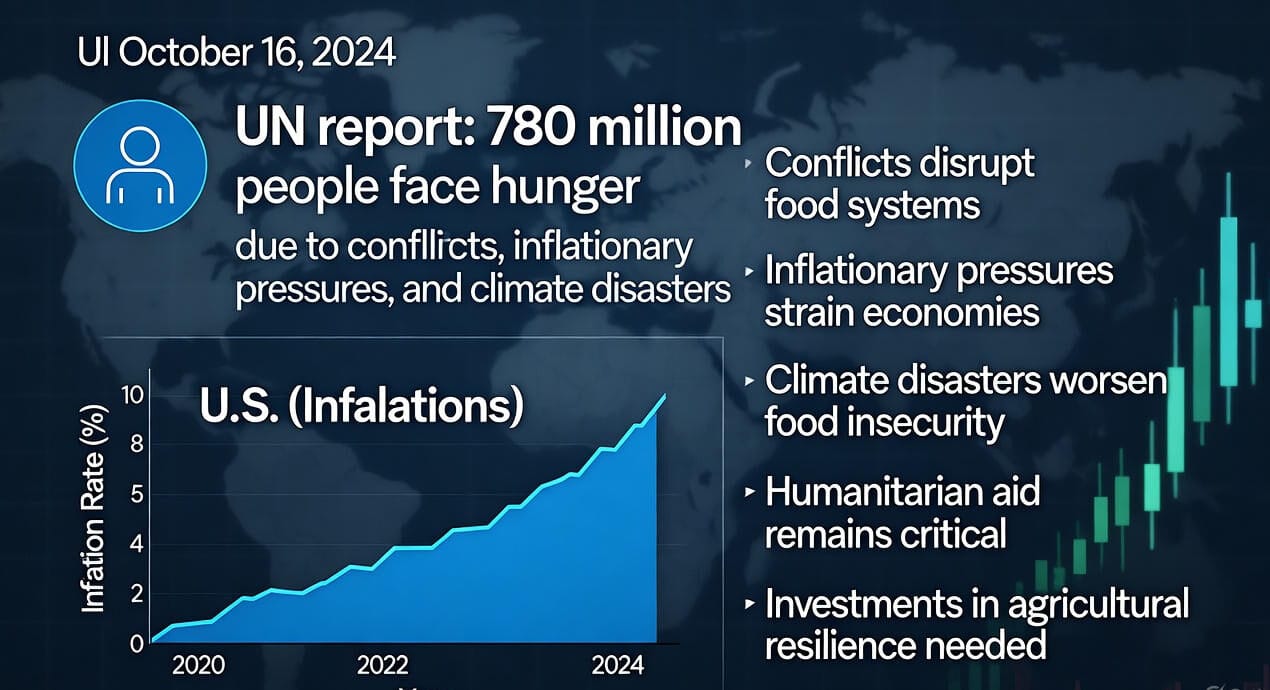
By lily thomas May 3, 2025
A Bold Push for Equality
I am following closely the new reports coming out of Bangladesh and they certainly are shocking. Today the streets of Dhaka were filled to the brim with as many as 20,000 fans of Hefazat-e-Islam, an ultra radical Islamist group, who were marching against the government’s plan to offer women the same rights as men. There is no such thing as a simple policy argument in an divided country of 180 million people.
The interim government, led by Nobel laureate Muhammad Yunus, is trying to shake things up through the Women’s Affairs Reform Commission. On April 19, the commission released a hefty report with 433 recommendations to empower women. We’re talking equal inheritance rights, banning polygamy, recognising sex workers as labourers, and allowing Bangladeshi women to pass citizenship to foreign spouses. They even proposed expanding parliament to 600 seats, with 50% reserved for directly elected women. In a nation where cultural and religious norms often sideline women, these ideas feel revolutionary.
The Backlash Begins
But the push for change has hit a wall. Hefazat-e-Islam isn’t just sitting quietly. At their massive rally in Suhrawardy Udyan, leaders like Mamunul Haque and Mahmud bin Hossain slammed the proposals as “anti-Quran” and a Western conspiracy to undermine Islamic values. Protesters waved banners reading, “Say no to Western laws on our women,” and some even burned an effigy of a woman to make their point. Their demands? Scrap the commission entirely and replace it with one that includes Islamic scholars to align reforms with Sharia law. They’ve threatened to paralyze the country with a nationwide protest on May 23 if the government doesn’t back down.
Other Islamist groups, like Jamaat-e-Islami and Khelafat Majlis, have piled on, calling the reforms a “malicious effort to distort Islamic ideology.” They’ve even warned Yunus that he could end up like former PM Sheikh Hasina—ousted and exiled—if he keeps pushing. That’s a bold threat in a country where student-led protests toppled Hasina’s 15-year regime last August.
Voices of Resistance

The Women’s Affairs Reform Commission isn’t backing off, though. Led by experts like Maheen Sultan from the Brac Institute and Supreme Court lawyer Fawzia Karim Firoze, they’re arguing that religious and social norms are the root of gender discrimination. Their report calls for a permanent Women’s Commission to protect women’s rights, a revamped women’s ministry, and gender equality units in every government department. It’s a bold vision, and it’s got people talking—some in support, others in outrage.
Minority Women Caught in the Crossfire
Here’s where things get even messier. Since Hasina’s fall, minority women, particularly Hindus, have been facing increased violence. Reports on X and in local media mention cases like a Hindu woman allegedly gang-raped in Jamalpur, with little action from authorities. Human rights groups say attacks on minorities have spiked, and the interim government’s been slammed for not doing enough. It feels like the fight for women’s rights is leaving some women behind.
A Nation at a Crossroads

I’m torn watching this unfold. The commission’s proposals could transform Bangladesh, where 92% of people are Muslim and traditional norms run deep. But today’s protests show how divided the country is. Hefazat isn’t some small faction—they’ve got serious sway, especially in rural madrasas. Yunus, under pressure to announce an election date (he’s hinted at late 2025 or early 2026), is in a tough spot. Push too hard, and he risks alienating millions. Do nothing, and gender equality remains a pipe dream.
What’s Next?
The May 23 protests could turn up the heat. If Hefazat follows through on their threat to “paralyze” the country, we might see more than just marches. Meanwhile, women’s rights activists are planning counter-demonstrations, and the international community, including the UN, is watching closely. Bangladesh is at a turning point, and the outcome will shape the future for millions of women.
this article publish by newsflayer







